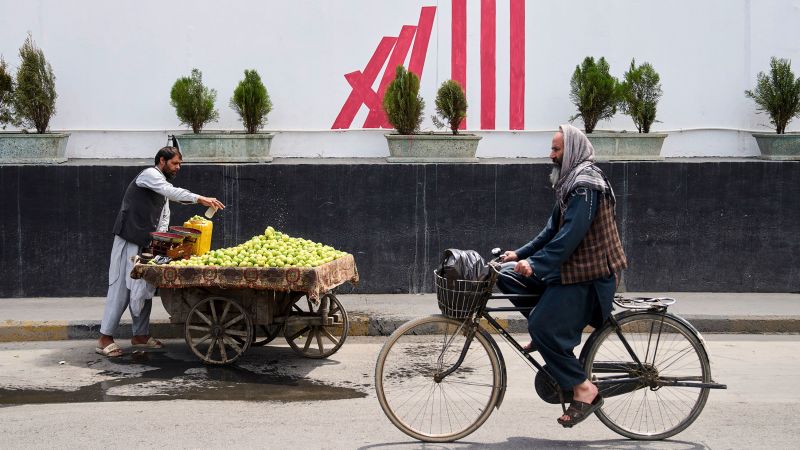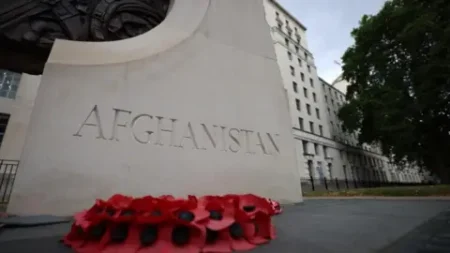In a move that has sparked renewed fear and uncertainty among many Afghans, President Donald Trump recently announced a proclamation aimed at barring nationals from Afghanistan and eleven other countries from traveling to the United States. This decision has compounded the existing feelings of betrayal felt by many vulnerable Afghans who have been left in an agonizing limbo due to changes in immigration policies and practices during the Trump administration. The various pathways that previously existed for Afghans to immigrate to the United States have been severely disrupted, leaving thousands of individuals uncertain about their futures in light of the new regulations.
For those seeking refuge under the Special Immigrant Visa (SIV) category—designed for individuals who have worked with or on behalf of the U.S. government in Afghanistan—the latest travel ban does provide an exception. However, advocates for Afghan refugees have pointed out that many individuals who contributed to U.S. efforts during the nearly two-decade-long conflict do not qualify for SIVs. Some may not meet the employment requirements while others may not be eligible due to their specific roles. Furthermore, not only former employees of the U.S. government are at risk; family members with any connection to the U.S. now find themselves threatened amidst the ongoing political turmoil in Afghanistan.
While there are exceptions noted for SIV holders in the travel ban, advocates caution that the practical implications of such a carveout are stymied by the significant cuts and policy changes being enforced by the Trump administration. A former State Department official remarked that despite the apparent concession for SIVs, major initiatives intended to assist Afghan relocation, such as the Office of the Coordinator for Afghan Relocation Efforts, are facing closures. The elimination of this office, along with the cancellation of programs like Enduring Welcome—which aided Afghan SIV recipients in reaching third countries to finalize immigration processing—has made the situation increasingly dire.
Despite the administrative maneuvers, retired Lt. Gen. John Bradley, founder of the Lamia Afghan Foundation, underlines that the systems required for a successful transition and resettlement of SIV holders into the U.S. are fundamentally lacking. The infrastructure that is necessary to facilitate their arrival and integration into American society is being dismantled, rendering the SIV exception largely ineffective for many.
The complexities of the new proclamation and its implications remain a source of confusion and concern for Afghans who have received SIVs and who still have family and friends in Afghanistan or in third countries such as Pakistan. Many of these individuals, like Andrew Sullivan of the non-profit No One Left Behind, emphasize the urgent need for reunification of SIV recipients with their stranded family members still living under Taliban rule, bringing attention to tragic cases where families have been separated.
The worry is palpable among those who have been impacted by the policy changes, particularly among those who have had to leave family behind amidst chaos. One individual, referred to as “H,” shares his deep-seated fears for his brother, who remains in Afghanistan and does not qualify for an SIV. He articulated uncertainty about how the travel ban would affect his brother’s chance for safety, as the situation for civilians under the Taliban has become increasingly dangerous and oppressive.
Organizations and advocates are fully aware of the restrictions and challenges that the travel ban introduces, leading to a heightened state of anxiety among Afghan nationals. Zia Ghafoori, a former interpreter for the U.S., has labeled the administration’s moves as a betrayal, citing that many Afghan allies initially felt hopeful for their futures when they helped U.S. forces. However, with every new policy change, their hopes continue to dwindle.
As another Afghan known as “M” navigates his immigration process, he remains uncertain how the travel ban affects his family still in Afghanistan. Despite having worked for the U.S., he knows that his chance of coming to America is intertwined with the status of his green card application, which remains in limbo, adding to the growing anxiety for many in similar situations.
Even amid these complex dynamics, those with Special Immigrant Visas are grappling with new challenges. While some organizations are stepping up to provide financial assistance for flights, there are ongoing fears that they might still face difficulties due to the impending ban. The situation remains fluid, with many advocating groups bracing for the measures to be enforced and monitoring closely how the exceptions are applied. Anna Lloyd from Task Force Argo highlights the critical necessity of honoring these exceptions, as the hopes of many Afghans seeking safety and a new start in the U.S. hinge on these policies and their implementations.











